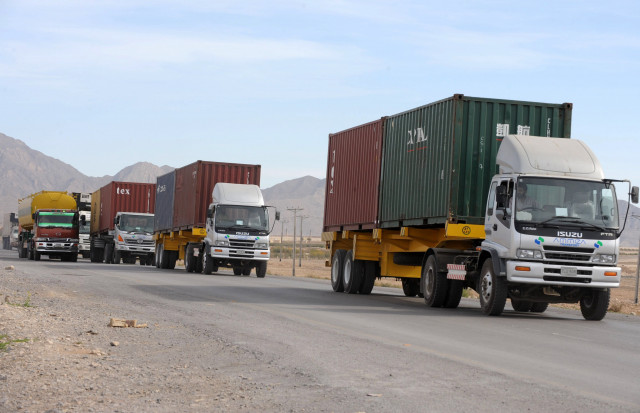Reopening Nato supply routes
Parliament will be happy to decide the matter of resumption of routes, but it will ask questions before it does so.

That is the impression one gets after listening to the latest remarks of the Pakistan Army Chief General Ashfaq Parvez Kayani. For example, he said while visiting Jacobabad airbase on February 13, that the “US [now] always takes Pakistan into confidence when it comes to conducting operations against militants on bordering areas of Afghanistan”. The next logical question is: Will Pakistan, too, relent and let the routes reopen? To this the general has given the correct reply: “The decision to resume Nato supply routes will be taken by parliament alone.”
The elements of ‘satisfaction’ include the return to Pakistani control of the airbases being used by the US. Since these were the locations from where the drones used to operate, the other important element, namely the drone attacks, has also been partially addressed with the military holding forth a promise of bringing them down at some future time.
Parliament will, of course, be happy to decide the matter of the resumption of the routes, but it will ask questions before it does so. It will recondemn the drone attacks, which are still continuing and form the backbone of the US antiterrorism strategy in the post-withdrawal period. Parliament, where a committee is busy formulating a new template of Pakistan-US relations, will be considering the matter of Balochistan being discussed in the US Congress. To that there are two aspects and it will be interesting to see how the events unfold.
Pakistan has already protested to the US for discussing the situation in Balochistan in a foreign affairs committee. The opposition has already reprimanded the government for not rising to the challenge of defending Pakistan’s sovereignty vis-à-vis America’s hegemonic assault. However, the PML-N’s Chaudhry Nisar Ali Khan has more or less accepted General Kayani’s statement that the Baloch are not being killed in Balochistan by the military. How this will sit with the PML-N’s newfound friends in Balochistan is difficult to say, but scepticism over the general’s exoneration of the military has already been expressed in some quarters.
Two factors in regard to parliament’s shift of position over the Nato routes are worth considering. The ‘permission’ will not come any time soon because parliament is still not done with its outrage against the US. It would be odd if in the midst of condemning the discussion of Balochistan in US Congress, it is expected to wax conciliatory and give the go-ahead to the routes. The other factor worth considering is the public feeling after an extraordinary showcasing of strength by the religious, banned and semi-banned group of entities known as Defence of Pakistan Council which says it will attack the Nato trucks plying on the supply routes.
Pakistan has steadily narrowed its options on the question of relations with the US in particular and foreign policy in general. What does this imply? On the face of it, by going to parliament and taking the matter out of the hands of the PPP government, Pakistan has signalled national unity in the face of a superpower, but it also signifies lack of confidence and trust between the military and the opposition on one hand, and the ruling coalition on the other. It also means, the curtailment of Pakistan’s ability to take bold decisions relating to its economy considered together with national security.
Islamabad’s ‘getting tough’ has paid off and one can see more flexibility in the American stance while dealing with Pakistan. Hidden behind this flexibility is a sophisticated strategy to take advantage of weaknesses behind Pakistan’s new tough stance mostly related to the state of the national economy.
Published in The Express Tribune, February 15th, 2012.














COMMENTS
Comments are moderated and generally will be posted if they are on-topic and not abusive.
For more information, please see our Comments FAQ